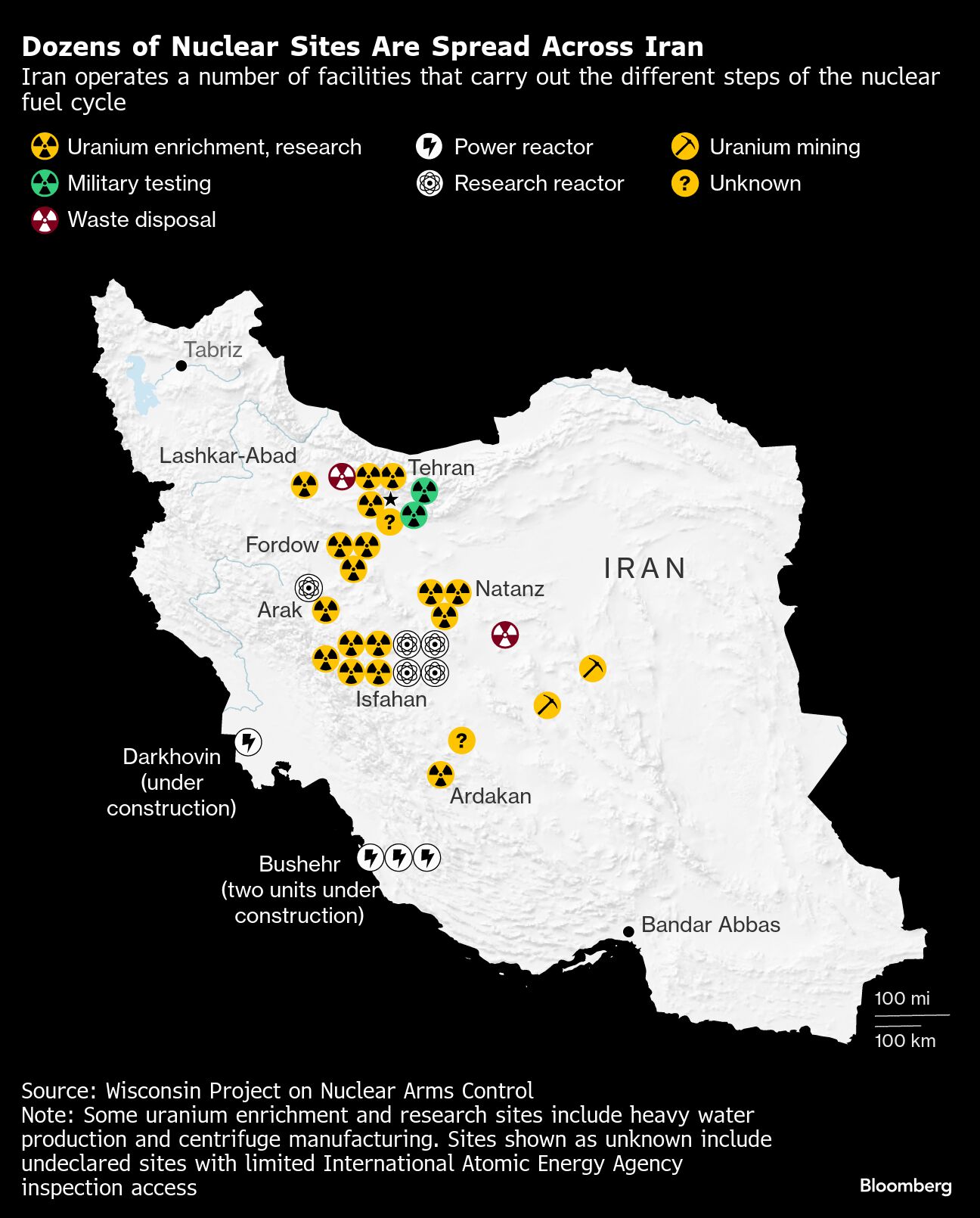
Donald Trump's top Middle East envoy said the US will focus on restricting Iran's uranium enrichment and missile capability rather than dismantling its entire nuclear program.
The president's envoy, Steve Witkoff, is leading the US delegation in nuclear talks with the Islamic Republic, which started last Saturday in the Omani capital, Muscat, with Oman acting as a mediator between the long-time adversaries. They are due to meet again on April 19.
Witkoff's suggestion that the US is ready to accept some enrichment would mark a significant diplomatic step. It goes against US and Israeli hardliners — who want to dismantle Iran's entire nuclear program — while reducing the urgency to restore United Nations Security Council sanctions, which demand that Iran suspend all enrichment-related activities.
“This is going to be much about verification on the enrichment program, and then ultimately verification on weaponization,” Witkoff told Fox News Monday, adding that Iran must not have the ability to enrich uranium to a purity beyond 3.67%. “Verification will be the key point which undergirds this agreement. We are going to have very tight verification.”

But Witkoff appeared to back off from the conciliatory tone on Tuesday morning, writing in a social media post that “a deal with Iran will only be completed if it is a Trump deal,” which he said means “that Iran must stop and eliminate its nuclear enrichment and weaponization program.” The State Department quickly retweeted Witkoff's statement, giving it more exposure.
Iranian officials, including President Masoud Pezeshkian, have already said they're prepared to provide guarantees and verification that Iran won't seek nuclear weapons and want to strike a deal that's similar to the original 2015 agreement — formally known as the Joint Comprehensive Plan of Action — that Trump abandoned in his first term.
Underscoring the tentative optimism surrounding the negotiations so far, Iran's Supreme Leader Ayatollah Ali Khamenei said on Tuesday that the first round of talks had been “carried out well” and gave a firm green light for them to continue.
“The red lines are clear for the other side as well as us. The talks should continue. They may or may not yield results,” he said in a statement on his official Telegram channel, adding that he was “neither overly optimistic nor overly pessimistic.”
Khamenei, who has ultimate authority in Iran and is the Islamic Republic's head of state, backed the 2015 nuclear deal grudgingly and in the face of much opposition from his hardline political supporters.
Trump's 2018 decision to withdraw from the multinational pact triggered a security crisis and almost led to a war with Iran. Khamenei frequently denounced engagement with the US as a result, saying that it could never be trusted to uphold an agreement.
Iran's Red Lines
Iran gradually started enriching uranium — a fissile metal that's required to make nuclear fuel — at levels far exceeding the 3.67% purity limit set under the original terms of the 2015 nuclear deal after Trump abandoned that accord during his first term.
“In some circumstances they're at 60%, in other circumstances 20%,” Witkoff said, referring to Iran's current uranium-enrichment levels. “That cannot be.”
While Iran's uranium enriched to 20% purity is currently used to manufacture medical isotopes at its Tehran Research Reactor, the country has sufficient fuel for years and could procure additional resources from Russia.
Witkoff said the talks would also address the Islamic Republic's “missiles, the type of missiles they have stockpiled there, and it includes the trigger for a bomb.”
The Islamic Revolutionary Guard Corps — the most powerful wing of Iran's military that was also designated a terrorist organization by Trump in his first term — repeated on Tuesday that missiles won't be part of any negotiation with the US.
“National security, as well as defensive and military capabilities, are among the Islamic Republic's red lines and cannot be discussed or negotiated under any circumstances,” Iran's state-run broadcaster reported on Tuesday, citing a spokesman for the IRGC.
Iran has a large ballistic missile arsenal that was most recently deployed against Israel when the two countries started direct strikes on one another for the first time in a decades-long shadow war.
The terms of the 2015 nuclear accord were also strictly limited to Iran's nuclear program and didn't cover any aspect of Iran's defense or regional activity.
Witkoff reiterated in his Fox interview that the Trump administration aims to avoid military action against Iran as he described the initial talks as “positive, constructive, compelling.”
Essential Business Intelligence, Continuous LIVE TV, Sharp Market Insights, Practical Personal Finance Advice and Latest Stories — On NDTV Profit.























